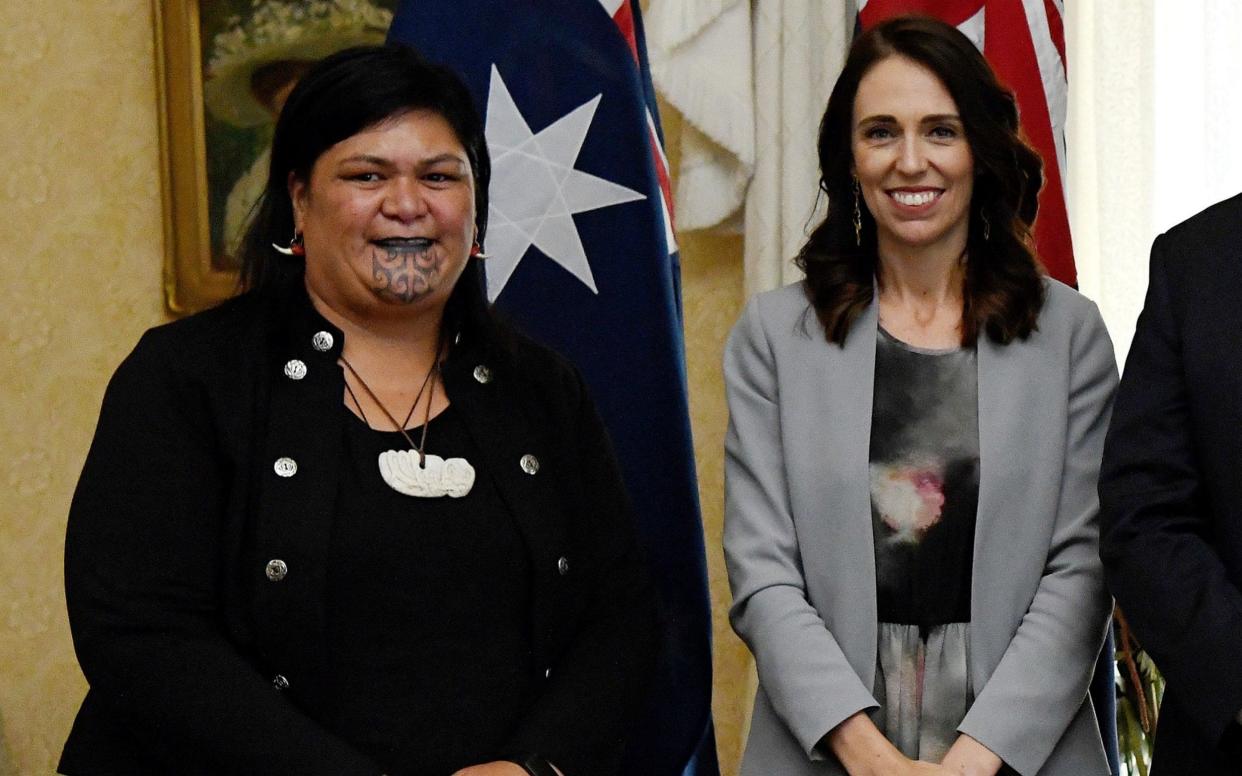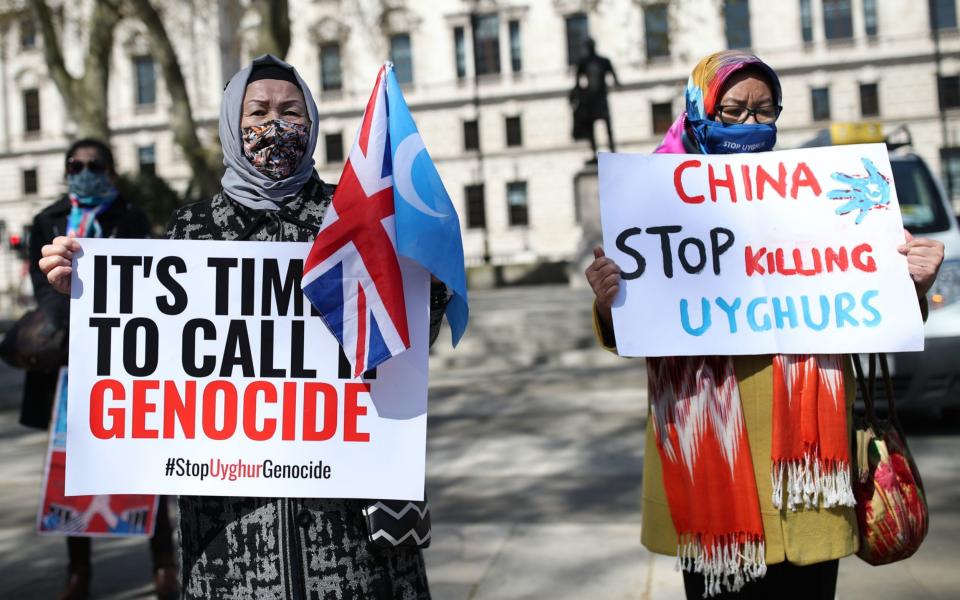New Zealand removes term 'genocide' from motion condemning China's treatment of Uyghurs

Prime Minister Jacinda Ardern faced accusations of soft-pedalling on human rights in China after her ruling Labour Party removed the word genocide from a motion condemning Beijing's treatment of the Uyghur minority.
New Zealand's 120-seat parliament unanimously passed a motion expressing "grave concern" at human rights abuses in Xinjiang after a debate on China's actions there on Wednesday.
The statement also called on the Government “to work with all relevant instruments of international law to bring these abuses to an end”.
But ruling party MPs voted to remove references to "genocide" after the government said it would only recognise such a designation made by an international court.
"We have not formally designated the situation as constituting a genocide, this is not due to a lack of concern," Nanaia Mahuta, the foreign minister, said in a speech in Parliament.
"Genocide is the gravest of international crimes and a formal legal determination should only be made following a rigorous assessment on the basis of international law."
She said New Zealand would continue to call "in the strongest terms" for China to uphold its human rights obligations.
Brooke van Velden, an MP from the opposition ACT party that put forward the original draft, described the decision to delete references to genocide as "intolerable".
"The world is looking to us now to see what standard we are going to set – can the CCP (Chinese Communist Party) play us off as the weakest link in the Western Alliance," she said.
"We may face the threat of loss if we speak our mind, but we face a much greater danger if we don't."
The ACT motion was backed by the Green Party, which called it "morally indefensible and a breach of New Zealand's legal obligations" to soften language in order to protect trade interests.
At least one million Uyghurs and Kazakhs in Xinjiang have been interned in camps that the Chinese government describes as counter-extremism education centres.
Human Rights Groups and media investigations have uncovered evidence of torture, forced labour, sexual abuse, and the forced sterilisation of women at the camps.
The Chinese government strongly denies such allegations.
It is not the first time Mrs Ardern's government has faced accusations of watering down criticism of China's human rights record in order to protect its trade relationship.
Last month, Mrs Mahuta said in a speech to the New Zealand China council that the government was “uncomfortable with expanding the remit of the Five Eyes relationship,” and would prefer to look for "multilateral opportunities to express our interest on a number of issues".
Critics said New Zealand was jeopardising the Five Eyes intelligence sharing alliance out of fear of jeopardising its single most important trading partner.
Five Eyes is an intelligence sharing partnership between Australia, Britain, Canada, New Zealand and the United States.

Canada, Britain, and the United States have all passed motions classifying China's treatment of the Uyghur as genocide.
Australia's parliament voted against a motion calling for recognition of genocide last month.
Mrs Ardern appeared to harden her stance on China on Monday, saying in a speech that differences of values were "becoming harder to reconcile" as Chinese influence grew.
Damien O’Connor, the trade minister, warned ahead of Wednesday's vote that a designation of genocide would likely impact the relationship with China.
“Clearly the Chinese Government wouldn't like something like that... I have no doubt it would have some impact [with trade]. That's hardly rocket science,” he said in comments to local media.

